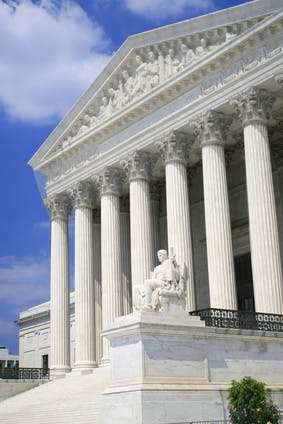By Eric B. Meyer
Have you noticed a theme here with my blog posts this week?
Yes, It’s been all about religious discrimination.
And yesterday, the U.S. Supreme Court announced that it is going to decide EEOC v. Abercrombie & Fitch Stores, Inc., a case involving an employee who wore a headscarf (or “hijab“) to work for religious reasons, but was told to remove because it conflicted with Abercrombie’s clothing policy.
Must employer know an accommodation is required?
The lower court granted summary judgment to the EEOC. The Tenth U.S. Circuit Court of Appeals in Denver reversed and granted summary judgment for Abercrombie, concluding that the employee never informed Abercrombie that she needed a religious accommodation to wear the hijab at work.
Now, the Supreme Court will have to decide whether an employer can be liable under Title VII for refusing to hire an applicant or discharging an employee based on a “religious observance and practice” only if the employer has actual knowledge that a religious accommodation was required and the employer’s actual knowledge resulted from direct, explicit notice from the applicant or employee.
Prediction: Abercrombie wins. I can’t see how a majority of the Supreme Court concludes that anything less than actual notice of a particular individual’s sincerely held beliefs would create a duty to accommodate them.
This was originally published on Eric B. Meyer’s blog, The Employer Handbook.
